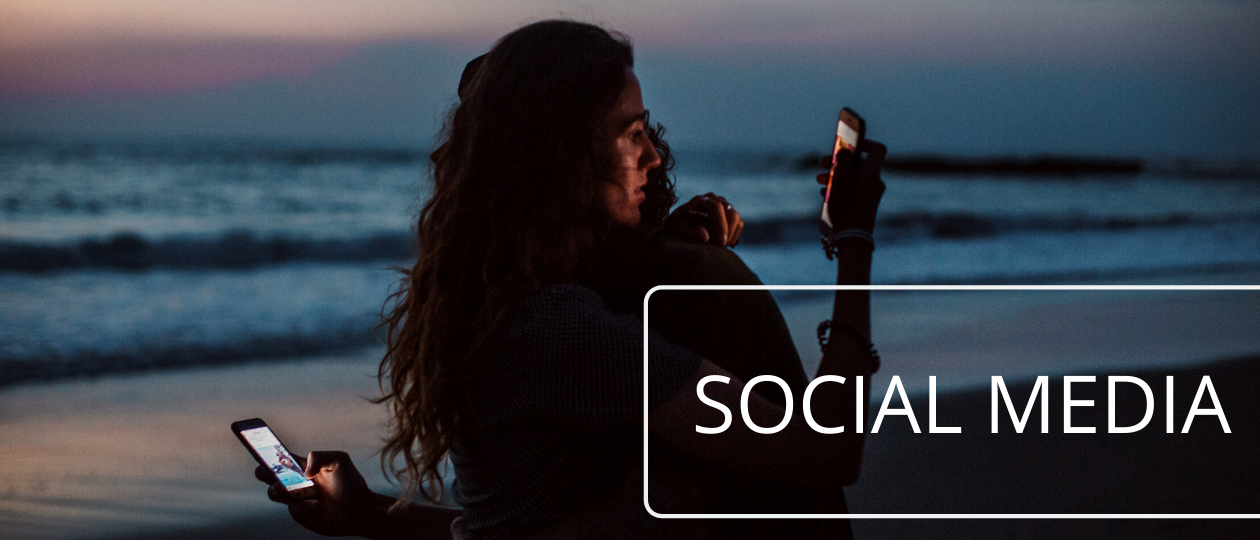Social Media
For most people these days, social media is an essential part of interacting with the world. According to a study published in 2018, the average person spends about 2 hours and 25 minutes per day on social media. That’s a big chunk of our time! It seems that for a lot of us, these online hubs have become our new “front porch,” so to speak. It’s our main way of fulfilling our basic need of interacting with other people. I’ll be the first to admit, it’s a little strange to me. Personally, I’m more old-fashioned. I like to sit down for a meal with a friend, catch a ball game, or go out and do something fun. But I understand that not everyone feels the same way, and especially these days, social media can clearly be a powerful tool for creating and maintaining wonderful friendships… except that’s not exactly what the current research shows.
That study I mentioned above was by the Journal of Depression and Anxiety. What I didn’t mention was that it also found that 67 percent of social media interactions were labeled “negative” by the person having them. Something I’ve talked about before is that children need 10 positive interactions for every 1 negative interaction in order to stay emotionally healthy. This concept holds true for adults as well—they typically need about 5 positive interactions for every 1 negative. So thinking that 67 percent of what appears, for many of you, to be your primary social outlet is negative is a little alarming.
Over the past few decades from the inception of social media to 2017, suicide rates have risen by 57 percent. Now, I don’t think that social media necessarily causes suicide, or even that it is inherently negative. I can’t tell you how much of that increase is actually owed to social media. But I know very well the harm that consistently negative social experiences can have, and with the statistics, I’m seeing it’s easy to believe that the way we’re using it is partially responsible.
So what can we do? One study on Gen-X people found that they had an average of about 50 friends—which turned out to mean online friends. Unfortunately, when the researchers asked how many of those they could count on in a tight spot, how many they could rely on for support, most people said they had none at all.
I know firsthand from my many years of counseling and therapy how common it is for people to have no one with whom they can talk about the important issues of life. I always encourage people to take a step beyond small talk—and I think that this issue goes beyond the medium. Whether or not social media has led to more suicide or negative social interactions, the real issue has always been with us. It takes effort to maintain meaningful relationships. It takes a willingness to be vulnerable and to talk about difficult subjects. Now as always, it’s up to us to help each other create a healthy social environment.
Have a blessed, wonderful day!
Alex Loyd



